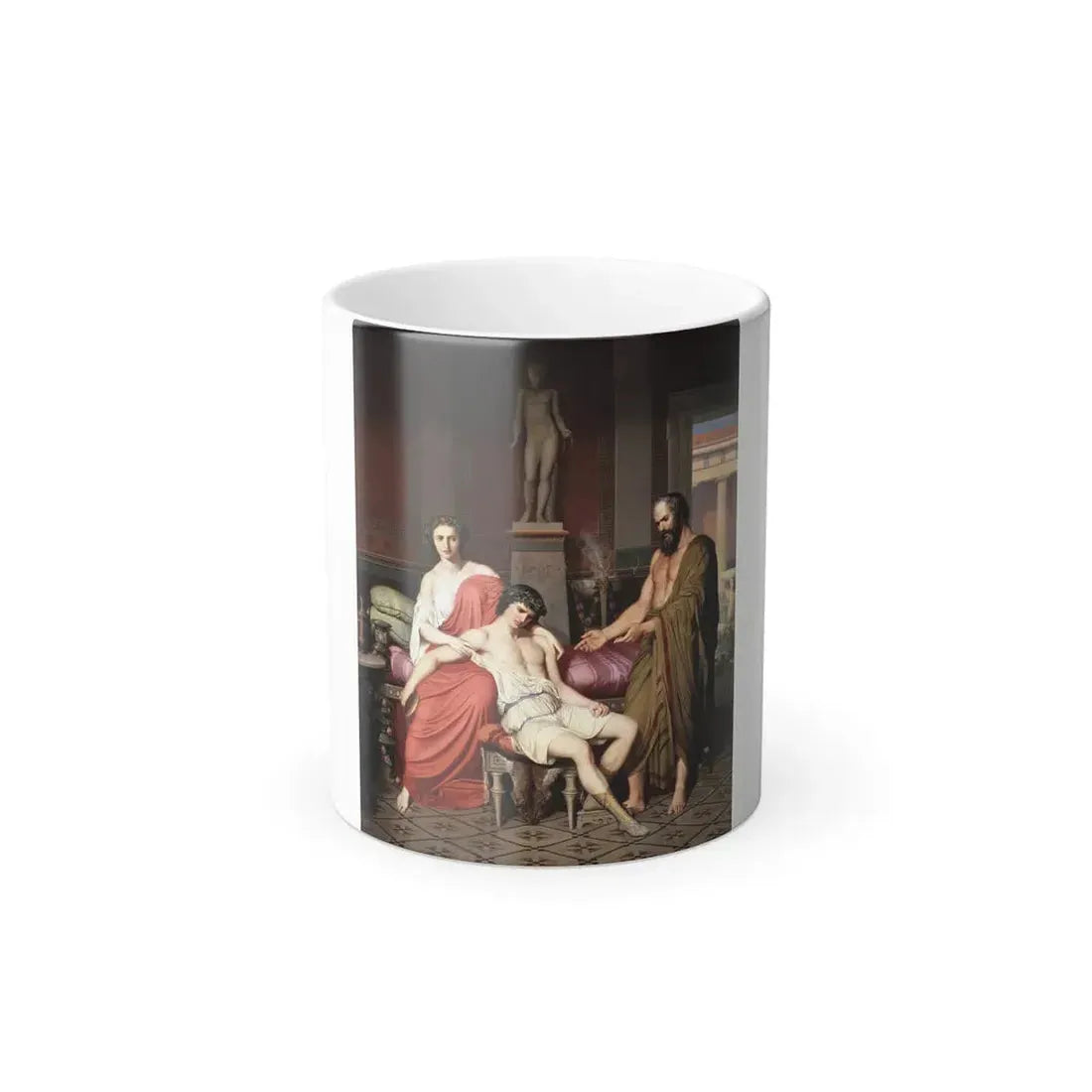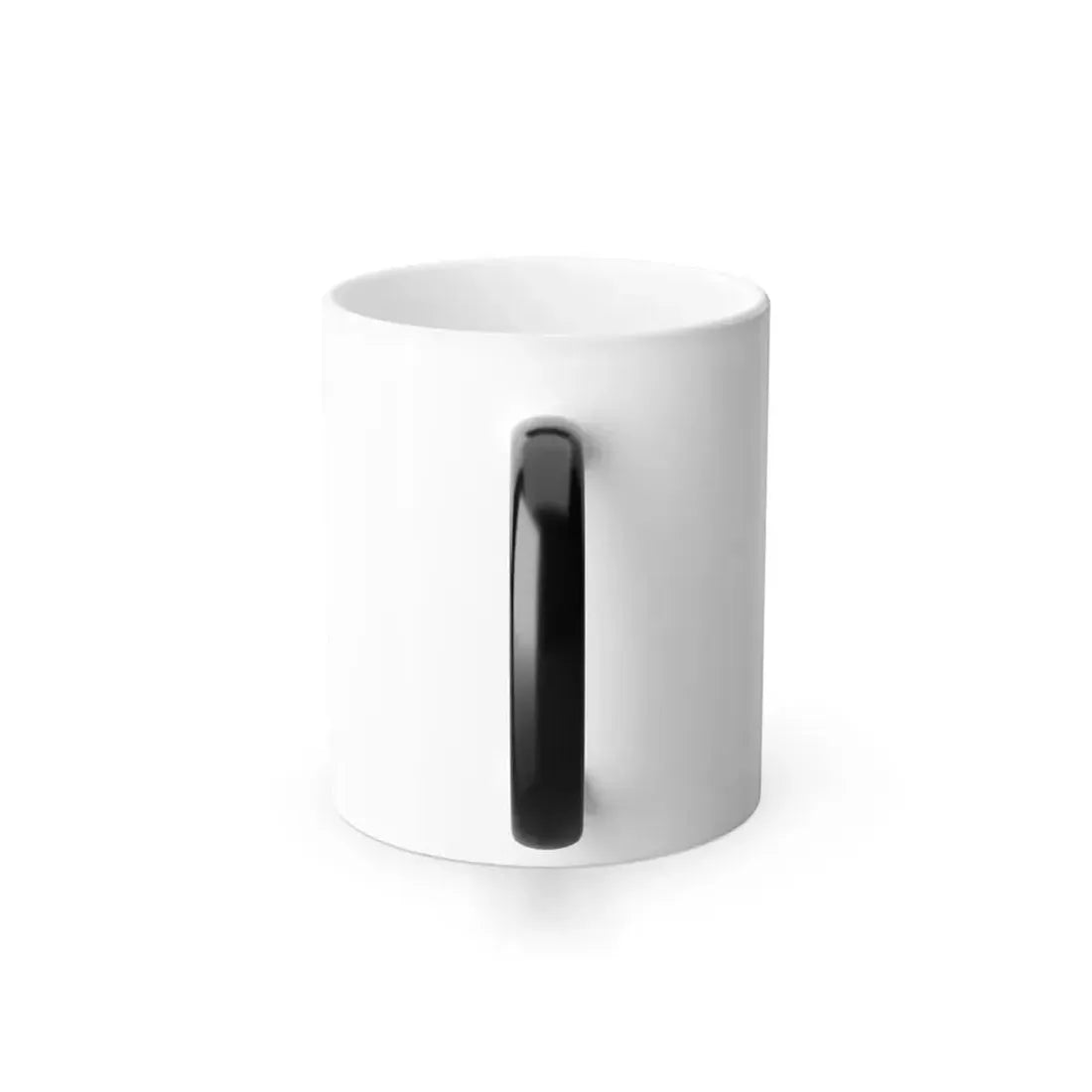



Color-changing ceramic mugs with a glossy finish, black exterior, and white interior. Available in one size: 11 oz (≈330 ml). Heat-reactive coating reveals your custom design when filled with hot liquid. BPA- and lead-free, with a comfortable C-handle.
This mug brings a playful twist to the daily coffee or tea ritual. At room temperature, it looks like a simple black mug with a glossy finish. But add a hot beverage, and your chosen design fades into view, showing vivid colors against the white interior.
The ceramic body is durable enough for repeated use, while the C-shaped handle balances comfort and grip. Printing uses sublimation techniques that fuse color into the heat-reactive surface for crisp results when the design appears.
- Material: ceramic with glossy black exterior and white interior.
- Size: one standard size, 11 oz (≈330 ml).
- Finish: glossy glaze with heat-sensitive surface.
- Printing: sublimation process produces crisp, vibrant colors.
- Safety: BPA-free and lead-free, suitable for everyday drinks.
- Effect: design is faintly visible when cold, fully revealed when hot.
Perfect as a novelty gift or a fun personal mug, the heat-reactive design makes coffee breaks more engaging. It works well for morning coffee, afternoon tea, or hot chocolate.
- Daily routine: fill with any hot beverage to reveal your chosen artwork.
- Gifting: the “magic” reveal makes it a memorable present for birthdays, holidays, or office exchanges.
- Office use: sparks conversation while still being practical for everyday drinks.
Note: for best results, avoid designs that rely heavily on deep black backgrounds, as they may blend with the mug’s surface when cold.
Unlike standard mugs, color-changing mugs require gentler care to preserve the heat-reactive coating. Hand-wash only — avoid the dishwasher and abrasive scrubbers, which can damage the finish and reduce the effect.
The mug is safe for short microwave use when heating liquids, but repeated high-heat cycles may shorten the lifespan of the coating. Always allow the mug to cool before washing.
Available in one classic size: 11 oz (approximately 330 ml). It’s large enough for most standard coffee makers and fits comfortably in most cabinets.
Size guide
All measurements are product dimensions in inches.
| 11 oz | |
|---|---|
| Height (in) | 3.78 |
| Diameter (in) | 3.23 |
| Diameter w/ handle (in) | 4.76 |
Note: measurements are approximate; slight variations may occur due to manufacturing tolerances.




